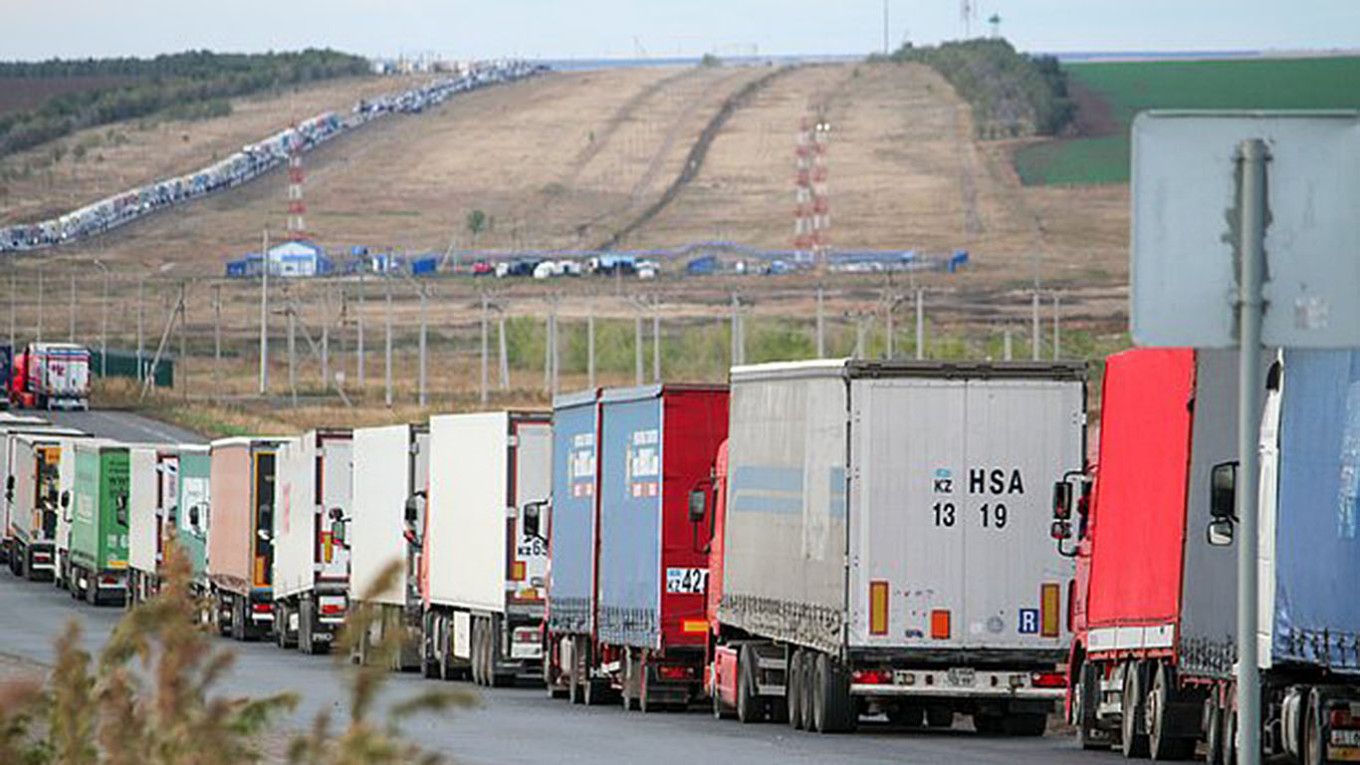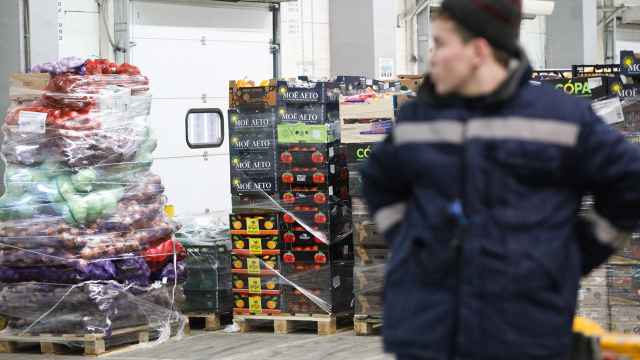Mass inspections of freight shipments on Russia’s border with Kazakhstan have halted a significant share of imports and could soon lead to shortages of consumer goods, The Moscow Times' Russian service reported Wednesday, citing importers and entrepreneurs.
The disruptions stem from intensified efforts to crack down on “grey” imports, or goods brought into Russia via Kazakhstan with incomplete or falsified customs declarations.
Logistics and freight forwarding companies estimate that between 10% and 25% of all consumer imports from China are now stuck at the border.
China accounts for roughly 40% of Russia’s total goods imports, meaning as much as 4-10% of consumer imports may be affected.
This grey cargo trade flourished under the Eurasian Economic Union’s open-border system, which allowed lightly monitored transit between Russia and Kazakhstan.
But Russian customs authorities have tightened inspections since September, leaving truckloads of undeclared goods stranded on the Kazakh side.
Only shipments with proper documentation for customs clearance in Russia are being allowed through, importers said, and even those face long queues due to overloaded checkpoints.
Tens of thousands of tons of goods have failed to reach their destinations as a result.
Logistics firms report noticeably emptier regional warehouses, and several importers said they had seen major transport company depots in large cities standing half-empty.
Employees at some warehouses said management plans to send part of their staff on unpaid leave due to the slowdown.
Entrepreneurs selling through online marketplaces have been hit hardest.
“It’s no secret that a large share of goods sold on marketplaces were ‘grey’ — that’s why prices could be twice as low as in major retail chains,” said an employee at a logistics company.
“At least half of sellers are in mourning — their autumn and pre-holiday deliveries are stuck at customs. Many shipments have been waiting at the border for over a month, and now it looks like they’ll only be released with a hefty surcharge of 40-50%,” said one importer who sells clothing, footwear and household goods through several major platforms.
He admitted to using grey import channels for some shipments “when the business economics just didn’t add up otherwise.”
Some new “cargo” shipments have been rerouted through border crossings with China in Manzhouli or via Mongolia.
However, redirecting goods already in Kazakhstan is logistically difficult and financially unfeasible, especially for low-value items, importers said.
To ease the situation, a decree signed by President Vladimir Putin on Oct. 24 allows goods to enter Russia until Dec. 10 without full customs declarations, certifications or labeling, provided they undergo proper clearance later.
According to the Federal Customs Service (FCS), around 338 trucks had crossed into Russia under this simplified scheme by Tuesday and were being escorted to temporary storage facilities in cities such as Ulyanovsk, Samara and Tolyatti for inspection and processing.
A customs warehouse employee in Ulyanovsk said a 20-person team had been assigned specifically to handle these shipments, suggesting large volumes are expected.
Meanwhile, logistics firms handling grey imports have informed clients they must now pay additional customs fees of $2.50-$3.50 per kilogram, which comes to about $25,000-$30,000 for a 10-ton truck, according to five business owners awaiting deliveries.
“For cheap goods like tableware or toys, it’s not viable — it more than doubles delivery costs,” one importer said. “Even for pricier items like footwear and winter clothing, the cost per shipment is up 30-40%.”
A Message from The Moscow Times:
Dear readers,
We are facing unprecedented challenges. Russia's Prosecutor General's Office has designated The Moscow Times as an "undesirable" organization, criminalizing our work and putting our staff at risk of prosecution. This follows our earlier unjust labeling as a "foreign agent."
These actions are direct attempts to silence independent journalism in Russia. The authorities claim our work "discredits the decisions of the Russian leadership." We see things differently: we strive to provide accurate, unbiased reporting on Russia.
We, the journalists of The Moscow Times, refuse to be silenced. But to continue our work, we need your help.
Your support, no matter how small, makes a world of difference. If you can, please support us monthly starting from just $2. It's quick to set up, and every contribution makes a significant impact.
By supporting The Moscow Times, you're defending open, independent journalism in the face of repression. Thank you for standing with us.
Remind me later.






